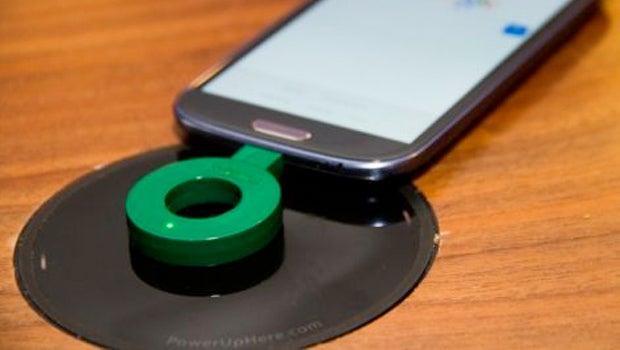Starbucks to trial Powermat wireless charging stations in UK

Starbucks patrons in some London branches will soon be able to wirelessly charge their phones and tablets, courtesy of Powermat integration.
The Seattle-based coffee company has announced (via Pocket-Lint) Powermat zones will arrive in ten stores in the capital by the end of January.
With the aid of a ring-like dongle that plugs into their phones, iOS and Android users will be able to place their handsets on the mat and receive a swift battery boost.
The Powermat system works on the Qi wireless charging standard so users must have a compatible ring in order for the tech to play nice together.
The 10 locations include Starbucks stores in Great Portaland Street, Pentonville Road, Euston Tower, Harewood Place, Princes Street, Kingsway, Wardour Street, Berkeley Street, Moorgate and Fleet Street. The firm says more locations will be announced in the near future.
The announcement follows Starbucks vow to roll out the wireless charging stations across the United States. In November the firm announced it was bringing the rings to 200 locations in the San Francisco Bay area.
Read more: Apple iPhone 6 review
The arrival in the UK follows a recent move by McDonald’s to bring wireless charging stations to its British stores. Powered by Aircharge, the fast food goliath will be bringing 600 stations to 50 of its restaurants.
Is 2015 the year wireless charging finally becomes ubiquitous? Starbucks and McDonalds jumping on board this month seems like a good start.


